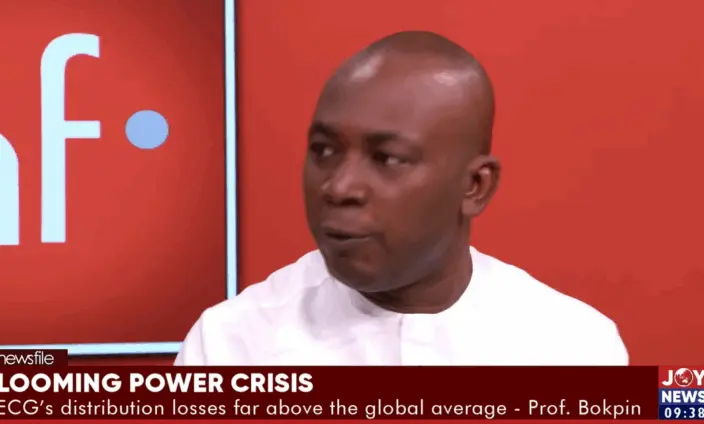The steady hum of tankers navigating Ghana’s roads is a constant reminder of the vital role these vehicles and their drivers play in the nation’s petroleum supply chain. Recognizing the operational challenges they face, Godwin Edudzi Tameklo, the Chief Executive Officer of the National Petroleum Authority (NPA), recently visited the Western Region to engage directly with tanker drivers. The primary aim: to gain a deeper understanding of their difficulties and collaborate on finding sustainable solutions, particularly concerning road conditions, operational costs, and safety.
Mr. Tameklo’s visit underscores the NPA’s commitment to fostering a conducive environment for tanker drivers, who are crucial for ensuring the smooth distribution of fuel across the country. The discussions centered around several key issues that directly impact the livelihoods and operations of these essential workers.
Addressing Operational Challenges Faced by Tanker Drivers
The tanker drivers voiced a number of pressing concerns, painting a picture of the daily realities they encounter on Ghana’s roads. Poor road conditions emerged as a significant obstacle, leading to increased vehicle maintenance costs and posing safety risks. High operational costs, encompassing fuel, spare parts, and other logistical expenses, further squeezed their profitability. Safety concerns at loading terminals, where drivers often spend considerable time, were also highlighted, along with persistent concerns about wages and remuneration that adequately reflect the demands and risks of their profession.
In response, the NPA CEO, Godwin Edudzi Tameklo, acknowledged the validity of these concerns and outlined several concrete steps the NPA is taking to address them. “Mr Tameklo expressed appreciation for the critical role tanker drivers play in ensuring the safe and efficient transportation of petroleum products nationwide,” assuring them that their contributions are valued and recognized. A key measure being pursued is the implementation of the Driver Remuneration Formula, currently awaiting board approval. This formula aims to establish a fair and transparent mechanism for determining drivers’ wages, taking into account various factors such as distance traveled and risk exposure. Furthermore, the NPA is actively working towards the rehabilitation of key access routes to depots, recognizing that improved infrastructure is essential for reducing vehicle wear and tear and enhancing safety. A comprehensive review of safety standards and loading protocols at terminals is also underway, with the goal of minimizing potential hazards and ensuring a secure working environment. To improve efficiency and transparency, the NPA is also exploring the introduction of digital tracking systems to monitor fuel distribution and prevent diversion.
NPA’s Commitment to Collaboration and Infrastructure Improvement
The NPA recognizes that addressing the challenges faced by tanker drivers requires a collaborative approach, involving not only the NPA and the drivers themselves but also various government agencies responsible for infrastructure development and law enforcement. The NPA intends to strengthen its collaboration with these agencies to resolve infrastructural bottlenecks that impede the smooth flow of tanker traffic. This includes advocating for the timely repair and maintenance of roads, bridges, and other critical infrastructure.
Moreover, the introduction of digital tracking systems is intended to enhance transparency and accountability in the fuel distribution chain. By monitoring the movement of tankers in real-time, the NPA aims to prevent fuel smuggling and ensure that petroleum products reach their intended destinations. Regular dialogue with transport unions will be crucial in ensuring that these promises translate into tangible improvements for drivers on the ground.
Tanker Drivers’ Optimism and Expectations
The tanker drivers expressed cautious optimism regarding the NPA’s renewed commitment to addressing their concerns. They welcomed the opportunity to engage directly with the NPA CEO and appreciated his willingness to listen to their grievances. They emphasized the importance of consistent dialogue and tangible improvements, stressing that promises must be followed by concrete actions. The drivers urged the NPA to maintain open communication channels with transport unions, ensuring that their voices continue to be heard and that their needs are adequately addressed. They look forward to seeing real improvements in their working conditions, including better roads, safer terminals, and fair wages.
The visit of the NPA CEO to the Western Region marks a significant step towards addressing the challenges faced by tanker drivers in Ghana. By listening to their concerns and working collaboratively to find solutions, the NPA aims to create a more conducive environment for these essential workers and safeguard the integrity of the nation’s petroleum supply chain. “The visit underscores the NPA’s resolve to build stronger relationships with frontline industry players and to safeguard the integrity of Ghana’s petroleum supply chain.” The NPA hopes that this renewed engagement will foster a spirit of trust and cooperation, leading to a more efficient and sustainable petroleum industry for the benefit of all Ghanaians.
Image Source: MYJOYONLINE





















